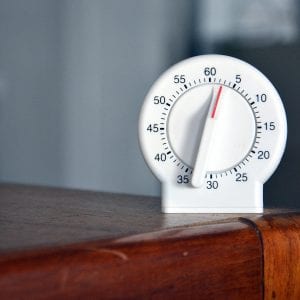Working with an expert witness necessitates open communication, thorough preparation, and control over expectations.
Good communication is vital for ensuring that an expert witness supports the position. Expert witnesses play a crucial role in assisting the court in fully understanding complex concepts. Emphasizing clarity, preparation, and maintaining objectives will help them be most effective. This article covers five crucial elements to bear in mind when communicating with an expert witness to ensure a smooth, successful collaboration that benefits both the attorney and the expert.
1. Establish Clear Communication
Open communication is essential for a successful working relationship, even with an expert witness. Having clear expert witness communications ensures that both the expert and the attorney are aligned on their roles and expectations. This involves discussing the scope of the case, the timeline, and any specific standards that must be adhered to. Establishing these expectations early on can help prevent misunderstandings later. Trust, which is built through open communication, allows the expert to confidently present their knowledge while ensuring the attorney receives consistent counsel. Regular meetings and honest dialogue keep the process smooth and ensure the expert can focus on delivering reliable testimony.
2. Focus on Clarity and Simplicity
Simple, straightforward language makes an expert witness’s testimony more effective. The professional should avoid using specialized lingo or complicated jargon. The idea is to give material in a way that jurors—who lack expert knowledge—can understand. Simplicity in explanations allows the expert to confidently communicate nuanced facts to the jury. Simplifying the language makes it more accessible, rather than eliminating important information. Understanding the testimony enables jurors to reach more sound findings. This may have a significant impact on the case outcome. Effective communication ensures that the expert’s message is heard and understood, which strengthens the overall case presented in court.
3. Prepare Thoroughly
A successful court presentation by an expert witness requires considerable preparation. The expert should have rehearsed answering such questions and be familiar with all aspects of the subject. This preparation should include both direct attorney questioning and challenging inquiries from the opposing side during cross-examination. Being prepared allows the professional to stay cool and confident even in the face of unexpected questions. The professional should also understand how their evidence compliments the overall case plan. A well-prepared expert appears more trustworthy and credible, which may influence how the jury regards them.
4. Emphasize Impartiality and Objectivity
When testifying, an expert witness must maintain objectivity and impartiality. The expert should ensure that their judgments are based only on the facts presented, without displaying any bias toward one side. This objectivity is essential for maintaining the expert’s authority in the eyes of the court. If the expert is perceived as biased, the case may be undercut holistically. The expert’s goal is to present a balanced, factual position supported by evidence rather than to advocate one side. Emphasizing impartiality can assist the expert’s testimony be viewed as more trustworthy and reliable, thereby improving the case presented in court.
5. Manage Expectations and Time

Working with an expert witness necessitates careful management of time and expectations. Early in the process, you must have open discussions about the timetable, deliverables, and any impediments. This ensures that the expert has enough time to prepare a well-researched, detailed testimony and helps to avoid any surprises later. Furthermore, it is critical to discuss the expert’s realistic output within the time frame specified. This proactive strategy reduces the chance of misinterpretation or delays, allowing everyone to set clear expectations. The expert can focus on their duty and offer excellent testimony that is appropriate for the case and the courtroom by organizing their work and setting clear timelines.
Conclusion
Working with an expert witness necessitates open communication, thorough preparation, and control over expectations. Simplicity and neutrality in testifying allow the expert to deliver insightful analysis that supports your stance. Having the expert witness and attorney communicate objectives and timelines leads to a more efficient and effective operation. Following these best practices ensures that the expert’s testimony has the most impact on the trial, therefore promoting the best possible presentation of the case.


Join the conversation!